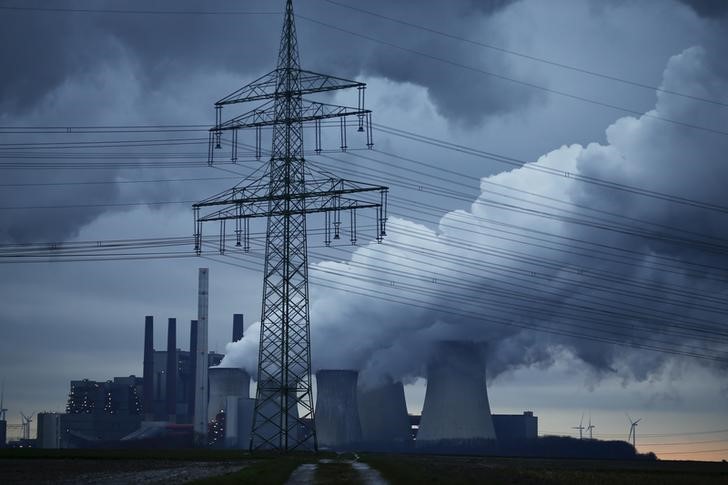FRANKFURT (Reuters) - German utility RWE's (DE:RWEG) Supply and Trading unit aims to double the contribution of external customer business to 20 percent of operating profit in three to five years, its chief executive said on Monday.
The unit, RWE's central trading floor, will become a pillar of the group's business alongside roughly 43 gigawatts (GW) of power generation capacity after a planned listing of its renewables, network and retail operations later this year. CEO Markus Krebber told reporters the strategy will help transfer RWE's energy know-how to new customer groups as some traditional business models decline in the transition from reliance on fossil fuels towards renewable energy.
External customers are industrial players in areas such as metals, transport, paper or chemicals that use RWE for delivery and hedging strategies for their energy raw materials.
These will help offset losses from lower purchases by local utilities - in the past traditional RWE customers - that will in future rely more on renewable energy and trading expertise of their own. Krebber also said the unit expects average annual operating profit of about 250 million euros (196.14 million pound) in the coming years, after 156 million euros in 2015. "We aim for this now that we have gas risk exposure under better control," Krebber said.
Profits at RWE Supply and Trading were squeezed in recent years by exposure to oil-linked gas procurement contracts, which were more expensive than the sales prices it could achieve at European spot gas marketplaces.
Krebber said RWE had moved away from index-linked gas contracts with all its suppliers in the Netherlands and Norway, bar those with Russian exporter Gazprom (MM:GAZP), which still needed renegotiating.
RWE will start new talks with the Russian firm in June.
He also said the unit would tap growth opportunities in overseas markets such as Asia and the United States.
Last year's operating profit at Supply and Trading was down 43.1 percent year-on-year, RWE said. It said the year had been exceptionally bad, but trading companies' profits were necessarily volatile.
The unit employs 1,300 in locations including New York, London and Singapore.

It will also act as a quasi private equity investor in its Principal Investments segment, where it develops projects for example in batteries, coal-to-biomass conversion, or photovoltaics with a view to selling them profitably.